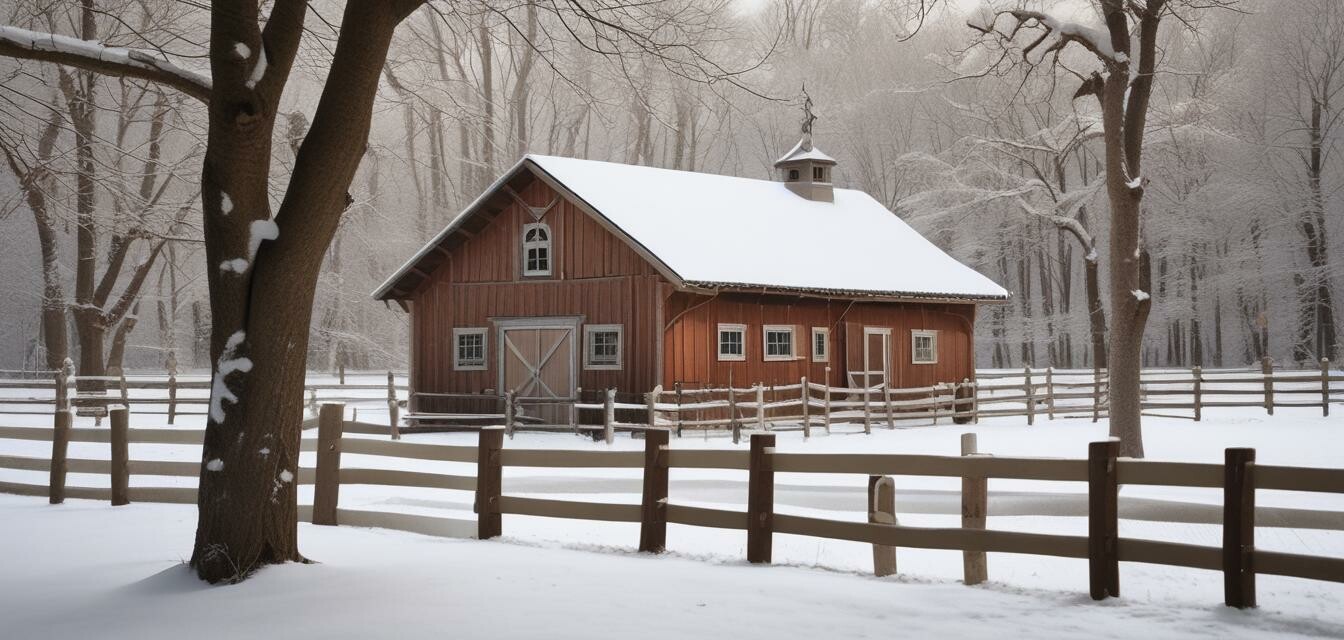
How to care for your horse in winter
Key Takeaways
- Winter requires tailored feeding and hydration strategies for your horse.
- Regular grooming is essential to maintain coat health.
- Proper shelter protects your horse from harsh weather conditions.
- Consider your horse’s exercise routine during the cold months.
- Monitor health closely, as winter can bring unique challenges.
Winter can pose unique challenges to horse owners. The cold temperatures, snow, and ice can impact your horse's health and comfort. In this article, we will explore essential tips for caring for your horse during the winter season, ensuring they remain healthy and happy throughout the colder months.
Feeding your horse in winter
Feeding your horse properly in winter is vital. The nutritional needs may change because of the cold weather. Here are some tips:
- Increase hay intake: Horses need more fiber during winter. Providing ample hay keeps their digestive system healthy.
- Monitor grain consumption: Horses with increased energy needs may require more grain or specialized feeds. Consult your veterinarian or nutritionist.
- Ensure water access: Clean, unfrozen water should always be accessible. Horses need sufficient hydration, particularly during cold months.
Hydration tips
During winter, horses may not drink as much due to cold water. To encourage hydration:
- Use heated water buckets.
- Provide salt blocks or electrolyte supplements.
- Offer warm water to entice drinking.
Grooming and coat care
Regular grooming plays a crucial role in winter horse care. Here’s why:
- Remove dirt and debris: Regular brushing helps maintain a healthy coat and skin.
- Check for skin issues: Winter can sometimes cause skin irritations; grooming helps spot them early.
- Manage their coat: If your horse has a thick winter coat, consider regular clipping to prevent excessive sweating during exercise.
Shelter and comfort
A proper shelter is crucial during the winter. Here are some factors to consider:
- Wind protection: Choose a barn or shed that offers protection against harsh winds.
- Comfortable bedding: Use straw or shavings to provide a warm bedding area for horses.
- Monitor temperature: Be vigilant about temperature changes inside the barn and adjust accordingly.
Outdoor considerations
When it comes to outdoor care, consider:
- Removing snow and ice from outdoor areas to prevent injuries.
- Providing shelter in the paddock if horses are kept outside.
- Regularly checking on your horse to ensure they are comfortable.
Exercise in winter
Exercise is just as important in winter as in other seasons. However, adjustments may be needed.
- Shorter sessions: With colder temperatures, consider shorter, more productive sessions.
- Adjusted routines: Incorporate indoor arena exercises if possible.
- Don’t overexert: Know your horse’s limits and adjust activities according to the weather.
Health monitoring
Keep a close eye on your horse’s health during winter. Some tips include:
- Regularly check for signs of colic or other health issues.
- Consult your veterinarian for vaccinations and health checks.
- Pay attention to changes in behavior or appetite, which can indicate health problems.
Conclusion
Winter horse care requires greater attention and adaptation. By focusing on proper nutrition, shelter, grooming, exercise, and health monitoring, you can ensure your horse remains healthy and comfortable throughout the colder months. For more tips and advice, check out our [Rider Tips and Advice](https://yourwebsite.com/blog/rider-tips-and-advice) category for more insights.
Tips for beginners
- Start preparing your horse for winter well in advance.
- Consult professionals if unsure about any aspect of care.
- Stay informed about common winter issues like frostbite or laminitis.
Pros
- Ensures your horse remains healthy through proper care.
- Reduces stress for both horse and owner.
- Long-term benefits for your horse's performance.
Cons
- Increased workload for horse owners.
- Potential costs associated with care supplies.
- Time-consuming to monitor needs consistently.
